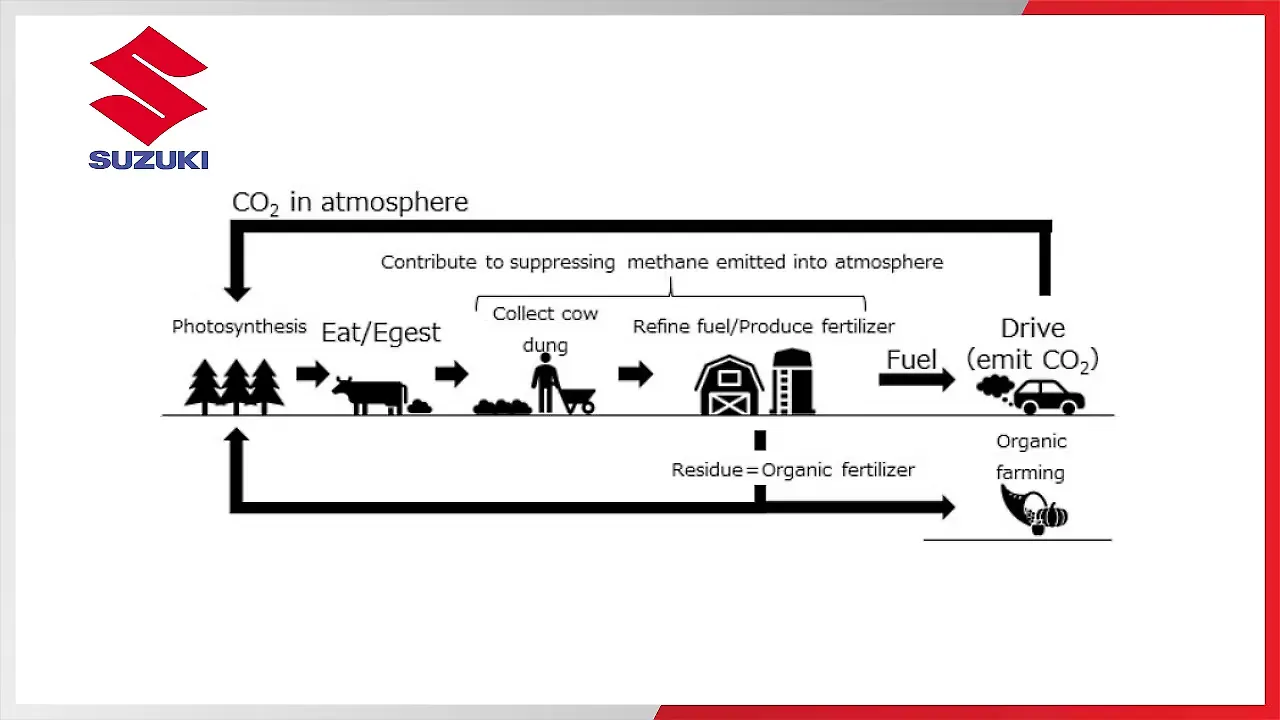
Green growth has been one of the key priorities identified in Budget 2023, and here is where biogas will be a key element of this drive. Interestingly enough, this is also part of Suzuki Motor Corporation’s growth strategy for 2030, which it had articulated last week.
Nirmala Sitharaman, Finance Minister, had said in her Budget speech on Wednesday that 500 new ‘waste to wealth’ plants would be established under the GOBARdhan (Galvanizing Organic Bio-Agro Resources Dhan) scheme as part of the effort to promote a circular economy.
These will include 200 compressed biogas (CBG) plants, including 75 in urban areas, and 300 community or cluster-based plants at a total investment of INR 10,000 crore.
“In due course, a 5% CBG mandate will be introduced for all organisations marketing natural and biogas. For collection of biomass and distribution of bio-manure, appropriate fiscal support will be provided,” said the Finance Minister.
In Sync With Suzuki
This vision is in sync with Suzuki’s roadmap for 2030, where it has stated, “While we expect the Indian market to grow toward FY2030, we also expect that an increase in total CO2 emission amount is unavoidable, regardless of reduction in CO2 emission from products. We will challenge to strike a balance between increasing sales units and reducing total CO2 emission amounts.”
Suzuki’s “unique initiative” to tackle this challenge is the biogas business. Here, biogas derived from cow dung, which are dairy wastes that can be seen mainly in India’s rural area, will be produced and supplied. “This biogas can be used for Suzuki’s CNG models that account for approximately 70% of the CNG car market in India,” the company has said.
Suzuki has signed an MoU with the Indian government agency, National Dairy Development Board, and Banas Dairy, Asia’s largest dairy manufacturer, to conduct verification of biogas. It has also invested in Fujisan Asagiri Biomass LLC that makes power generation from biogas derived from cow dung in Japan, and are beginning its study.
“We believe that the biogas business in India not only contributes to carbon neutrality, but also promotes economic growth and contributes to the society of India. We are also in view of expanding the business to other farming areas in regions including Africa, ASEAN, and Japan in the future,” stated Suzuki.
Based on the target date set by each government, the Japanese automaker aims to achieve carbon neutrality in Japan and Europe by 2050 and in India by 2070. “We will continue to strive to achieve our carbon neutral goals for each region, based on our mind-set to expand our customers’ choices and deliver products and services that meet the needs of each region,” it said.
The fact that Suzuki plans to grow this business to other geographies could imply that India may well become one of the key production bases worldwide. The country is already its biggest car market worldwide and substantial investments have been earmarked for electrification, which will take off in Gujarat. Biogas could be well the next big thing going forward.
Focus On Hydrogen
Beyond biogas, the Finance Minister also spoke of the recently launched National Green Hydrogen Mission, with an outlay of INR 19,700 crore. It is intended to facilitate the transition of the economy to low carbon intensity, reduce dependence on fossil fuel imports, and “make the country assume technology and market leadership in this sunrise sector. Our target is to reach an annual production of 5 MMT by 2030”.
The Budget has also set aside INR 35,000 crore for priority capital investments towards energy transition and net zero objectives, and energy security by the Ministry of Petroleum & Natural Gas.
To “steer the economy on the sustainable development path”, battery energy storage systems with capacity of 4,000 MWH will be supported with viability gap funding. A detailed framework for pumped storage projects will also be formulated, said Sitharaman.
Replacing old polluting vehicles is yet another “important part of greening our economy”. In furtherance of the vehicle scrapping policy mentioned in Budget 2021-22, the FM said, “I have allocated adequate funds to scrap old vehicles of the Central Government. States will also be supported in replacing old vehicles and ambulances.”
Photo courtesy: Suzuki Motor Corporation
Also Read
Suzuki Motor Crosses 25 Million Domestic Sales Mark In India
Aid Beyond EVs, Extension Of FAME II High On Budget Agenda